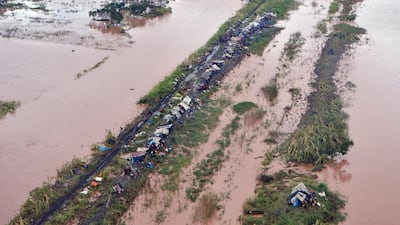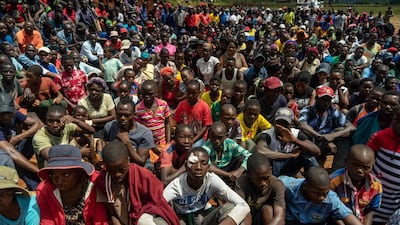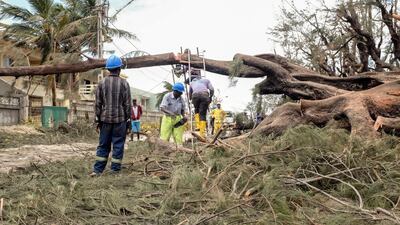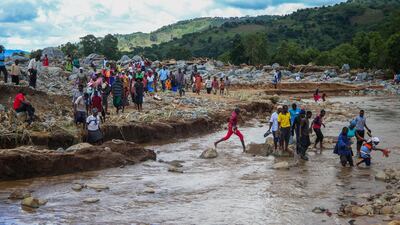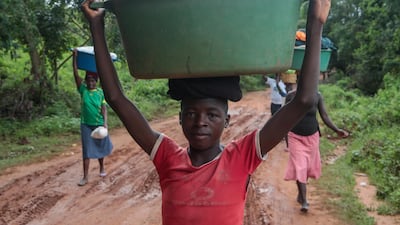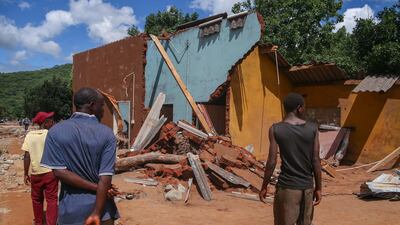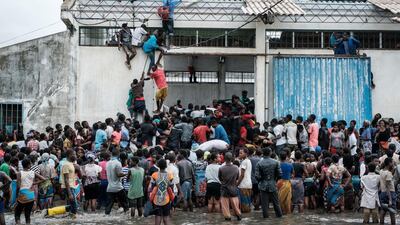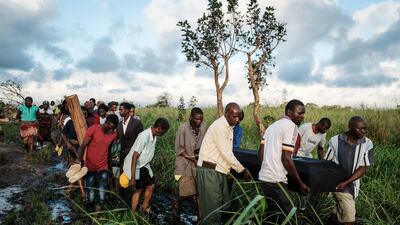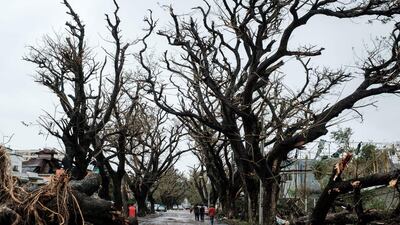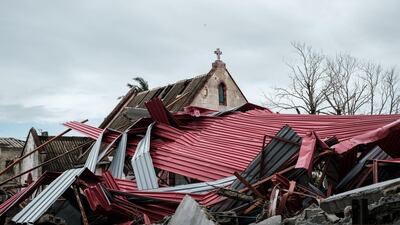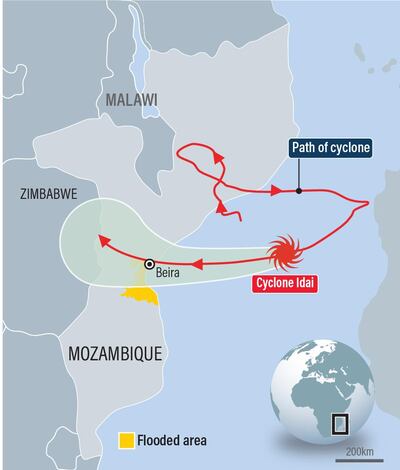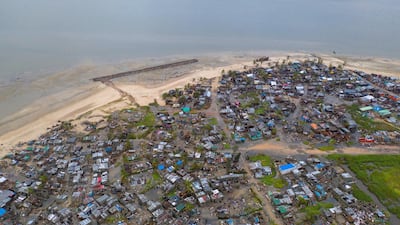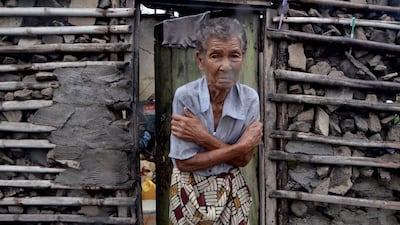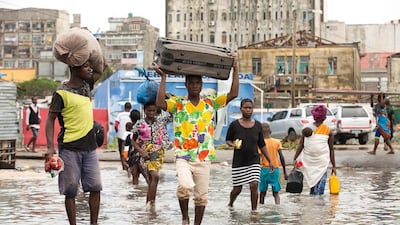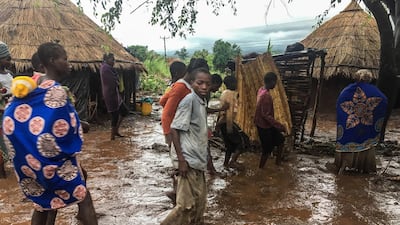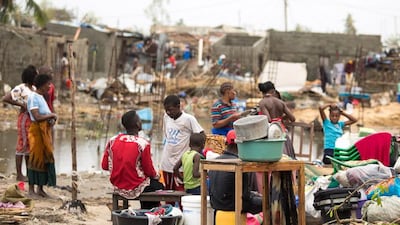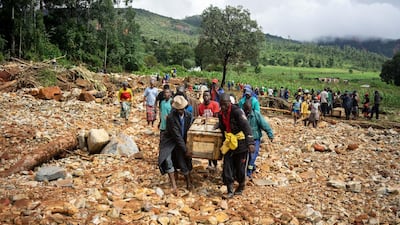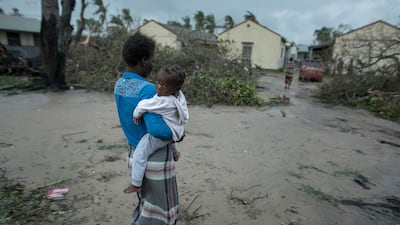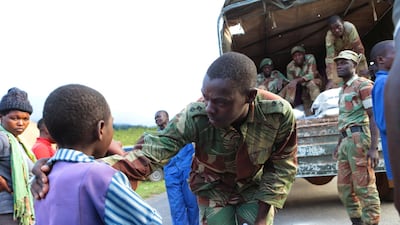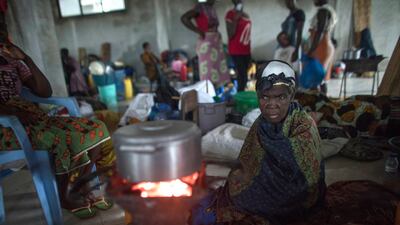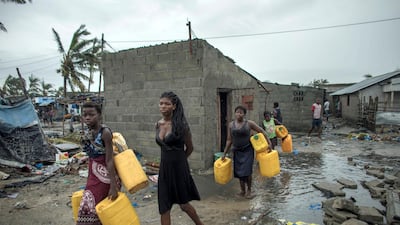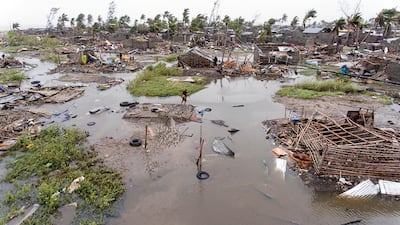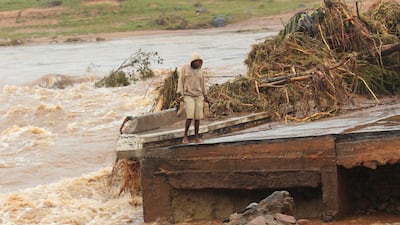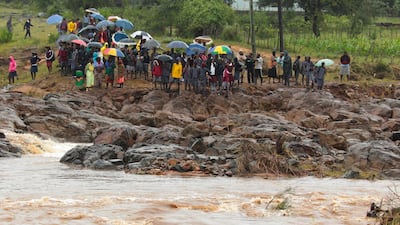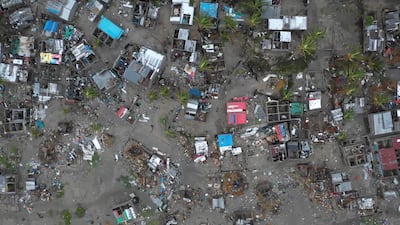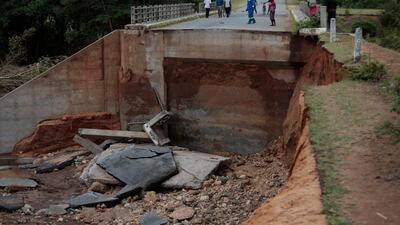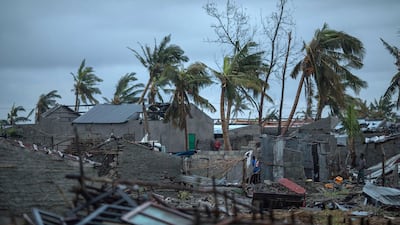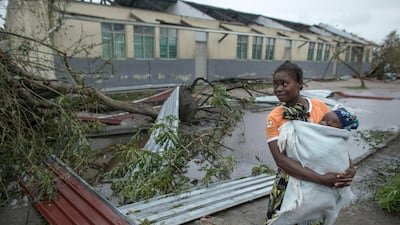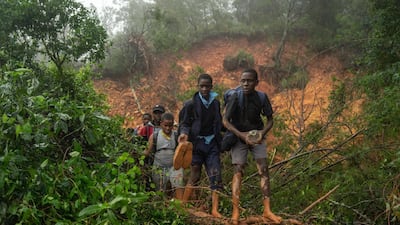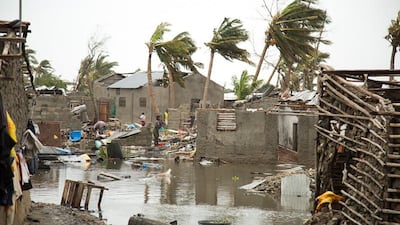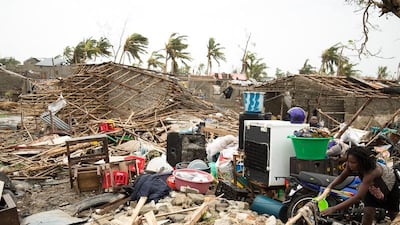Rescue workers are unable to reach desperate residents in central Mozambique because of the damage caused by metres-deep floodwaters from Cyclone Idai, which made landfall last week.
Aid groups trying to deliver food, water and shelter are struggling to match people's needs in areas around the port city of Beira where more than 200 have been killed.
That death toll that is set to rise significantly. Ninety per cent of the city was hit by the Category 2 tropical storm.
A UN official said an “inland ocean” stopped aid workers reaching those areas, which were hit by 175kph winds last week.
"The biggest problem at the moment is access," Shelby Stapleton, senior programme officer at World Vision Mozambique, which is working in four central provinces, told The National.
"The situation in the city of Beira is incredibly devastating.
"Accessing the communities outside of the city is an incredible challenge. There is water everywhere and there is a lack of fuel.”
Heavy rain is continuing to batter the areas around Beira and looks set to increase in the coming days.
Flood levels are expected to rise to eight metres and the damage may not be known until the rain stops and the floodwaters drain away into the Indian Ocean.
More than 100 people have died in neighbouring Zimbabwe and Mozambique’s President Filipe Nyusi predicted more than 1,000 deaths after flying over the flood-struck areas in a helicopter on Monday.
The disaster has been called the worst to hit southern Africa in the past two decades and aid groups say the response needed is unprecedented.
“This is one of the largest disasters I've seen here in Mozambique,” Ms Stapleton said. “It is a huge-scale response that we have not dealt with in a very long time in this part of the world.”
An aerial survey of Beira posted to Twitter by Jamie LeSueur, of the International Federation of Red Cross and Red Crescent Societies, shows widespread destruction.
Flattened houses could be seen alongside high floodwater across the country’s fourth largest city.
The road into Beira from Mozambique’s capital, Maputo, has been cut off and residents in the city are relying on generators to charge their phones and stop their food rotting.
Gert Verdonck, emergency co-ordinator for Medecins sans Frontieres in Beira, said on Wednesday that “significant emergency response including medical services and water and sanitation support” was needed in the city of half a million people.
"It's difficult at this stage to have a clear picture of the medical needs," Mr Verdonck said.
"It's even difficult to get to the health centres, because the roads are destroyed or because the health centres are destroyed."
The tropical cyclone also tore inland into Malawi, killing nine people and displacing tens of thousands.
Mozambique, Malawi and Zimbabwe are some of the poorest countries in the world.
The UN said on Wednesday that it would seek a large amount of funding from member states after the cyclone.
On Tuesday it released $20 million (Dh73.4m) from its emergency fund as agencies raced to help hundreds of thousands of people.
An Emirati Red Crescent official said that the UAE had set aside $2m for Mozambique, but that could rise after a delegation arrives to inspect the damage and assess the country's needs.
Abu Dhabi will also provide $2.9m in relief funds to Zimbabwe and Malawi, the state news agency Wam reported.
Britain has offered $7.9m and the EU $3.9m to help with the disaster relief.
"This may be one of the worst natural disasters to hit southern Africa in living memory and so we will need to do quite a lot," said UN spokesman Farhan Haq in New York.
"We do not know yet the scale of damage to make a precise estimate of what kind of numbers we are looking at but it will be large."
